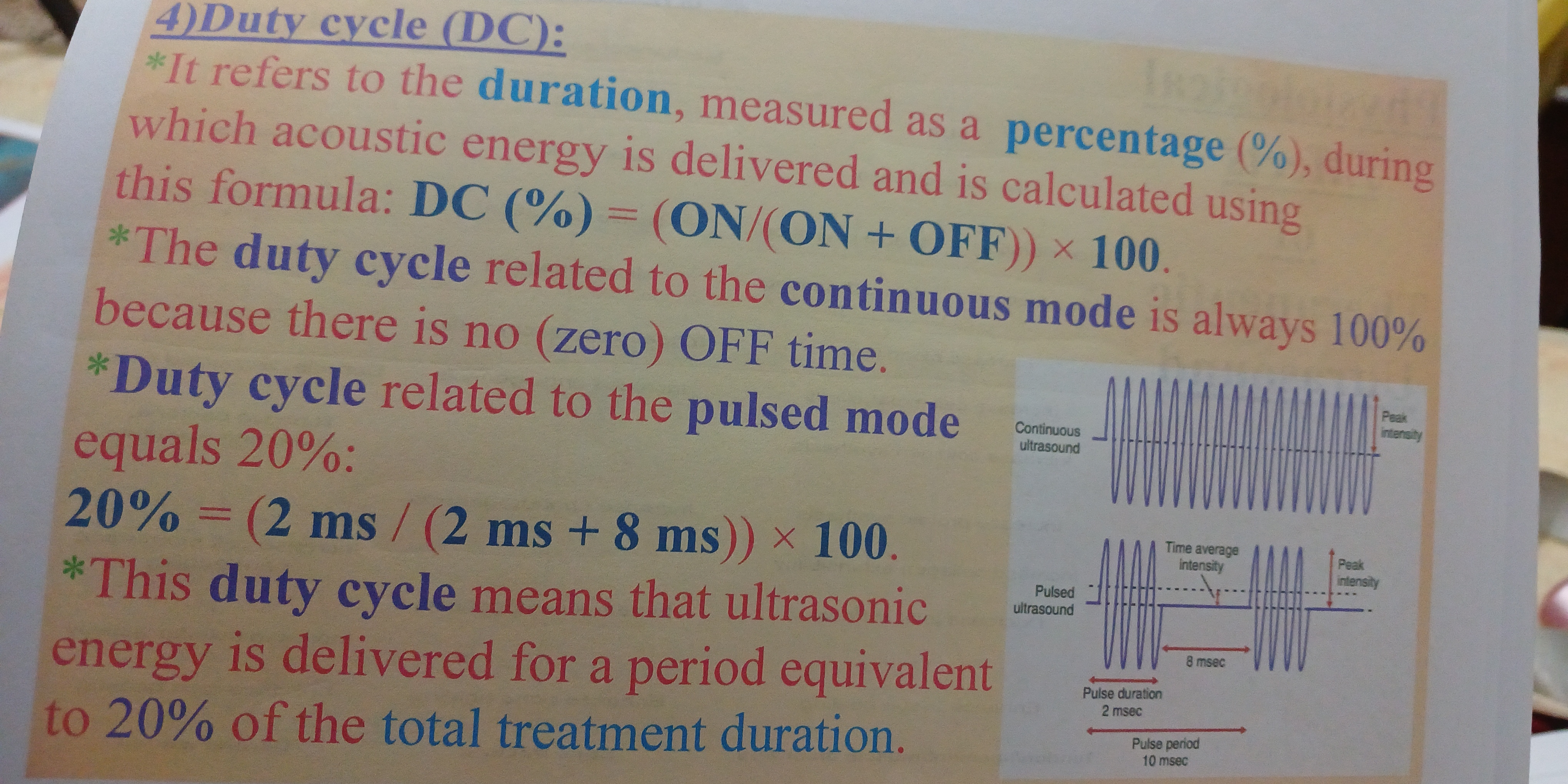What is the duty cycle and how is it calculated in ultrasound therapy?

Understand the Problem
The question is explaining the concept of duty cycle in ultrasound therapy, detailing how it is measured and calculated, specifically in continuous and pulsed modes. It presents a formula for calculating the duty cycle and provides an example of how a duty cycle of 20% is derived from given time values.
Answer
DC (%) = (ON / (ON + OFF)) × 100, continuous: 100%, pulsed: e.g., 20%.
The duty cycle is calculated using the formula DC (%) = (ON / (ON + OFF)) × 100. In continuous mode, the duty cycle is always 100%. In pulsed mode, it can vary (e.g., 20% with ON = 2 ms and OFF = 8 ms).
Answer for screen readers
The duty cycle is calculated using the formula DC (%) = (ON / (ON + OFF)) × 100. In continuous mode, the duty cycle is always 100%. In pulsed mode, it can vary (e.g., 20% with ON = 2 ms and OFF = 8 ms).
More Information
The duty cycle reflects the percentage of time ultrasound is actively delivered. In therapeutic use, different duty cycles can influence the heating effect and the type of tissue response achieved.
Tips
A common mistake is misunderstanding the ON and OFF times, leading to incorrect duty cycle calculations.
Sources
- Therapeutic Modalities: Ultrasound - Occupational Therapy - occupationaltherapy.com
- Duty Cycle Calculation for Ultrasound Treatment - physicaltherapy.com
- Using Ultrasound as a Therapeutic Modality - Human Kinetics - us.humankinetics.com
AI-generated content may contain errors. Please verify critical information